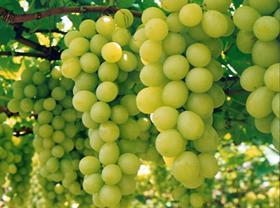
A proposed Australian Quarantine Inspection Service (AQIS) fee scheme could see packhouse registration costs skyrocket by as much as 3,700 per cent, according to a media release from the Australian Horticultural Exporters Association (AHEA).
Currently the cost of registering a packhouse for AQIS officials to inspect produce there for export is A$330 per year (US$344). Under the proposed scheme packhouse operators could see that cost exceed A$12,300, stated the media release.
The potential cost increase would make it financially unviable for smaller packhouses to become registered, AHEA spokesperson David Minnis told Fruitnet.com.
With many sheds potentially remaining unregistered inspections would likely be carried out at a small number of centralised transport facilities, he said, which would disrupt the cold chain and increase costs as produce would need to be double handled.
Australian Table Grape Industry chairman Nick Muraca told Fruitnet.com his industry would be particularly hard hit if the proposed scheme were introduced and took issue with the same fee being applied regardless of the size of the packing operation.
“In many other industries, such as citrus, you already have a lot of centralised packhouses that are operating almost year round,” he said. “These operations are more likely to be able to sustain these kinds of increases. With table grapes, there are a thousand growers in Australia who all have their own sheds, and they are only working for three months of the year.”
These small operators simply cannot afford to absorb such a substantial hike in registration costs, he said. “It’s cost prohibitive and growers can not afford to do it.”
Growers would subsequently be forced to send fruit to larger centralised packing sheds.
Mr Muraca said maintaining a cold chain was vital to table grape exports and would be made more difficult because of the additional loading and unloading of produce that would result if growers were forced to send fruit to a secondary site for inspections.
“If that fruit is rejected you then have to bring it back at an additional cost and you’ve further broken the cold chain,” he added.
The announcement of the scheme comes on the back of a difficult season for the Australian table grape industry with heavy rains and flooding hampering both growing and harvesting and also affecting fruit quality.
“The domestic market is already oversupplied and any barrier that will lessen the amount of fruit going to export markets will just increase problems here,” said Mr Muraca.
The AHEA media release stated the proposed fee structure amounted to a money grab by AQIS to cover administrative overheads and was not related to the actual costs of inspecting and registering the packing sheds for overseas markets.
The release also highlighted the problems faced by the country’s horticultural export sector explaining that in the 2009/10 season the value of fresh fruit and vegetable exports fell by 25.1 per cent, with the industry predicting a further decline for the current season following an extremely wet summer that affected produce quality, and the high Australian dollar, which is hampering the country’s ability to compete with other Southern Hemisphere fruit and vegetable suppliers.



